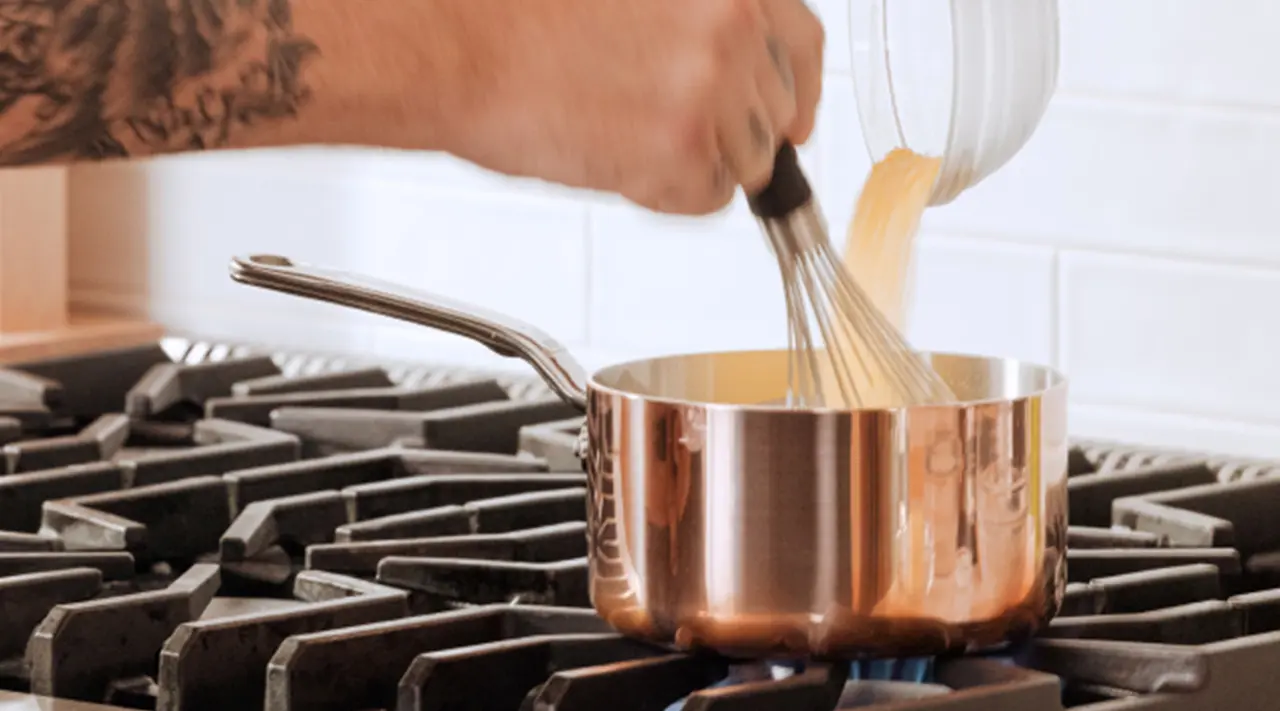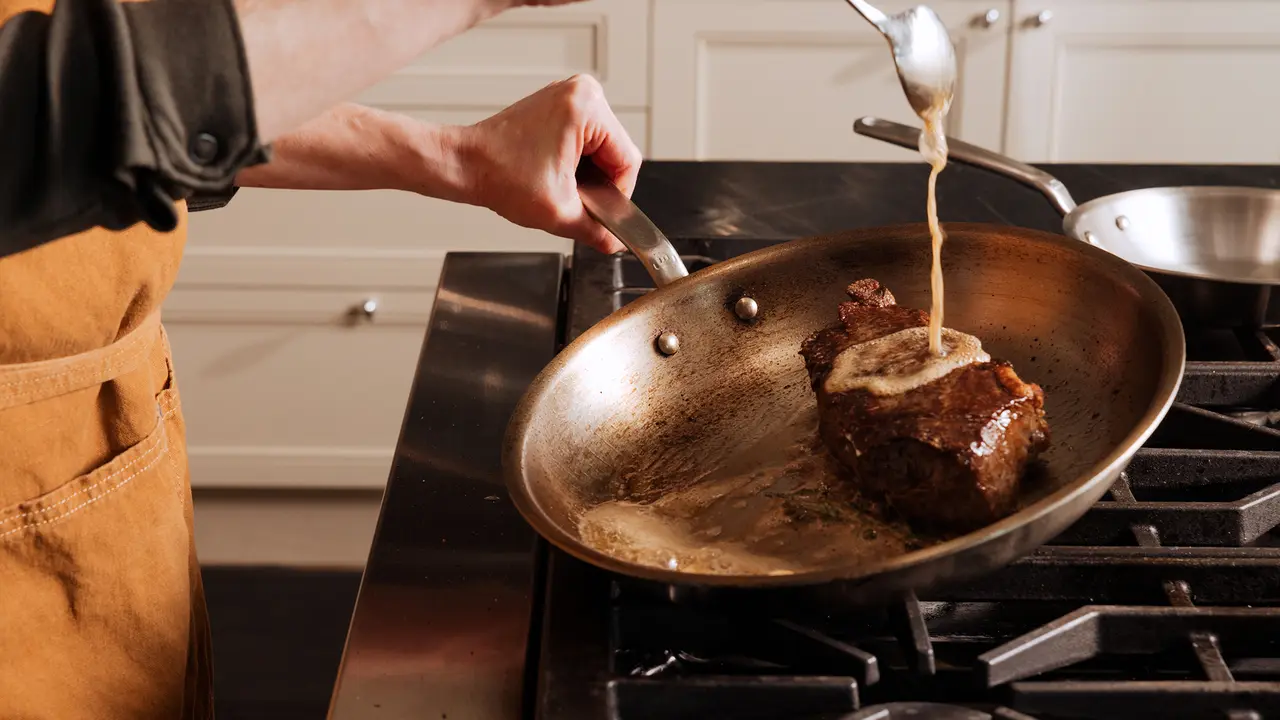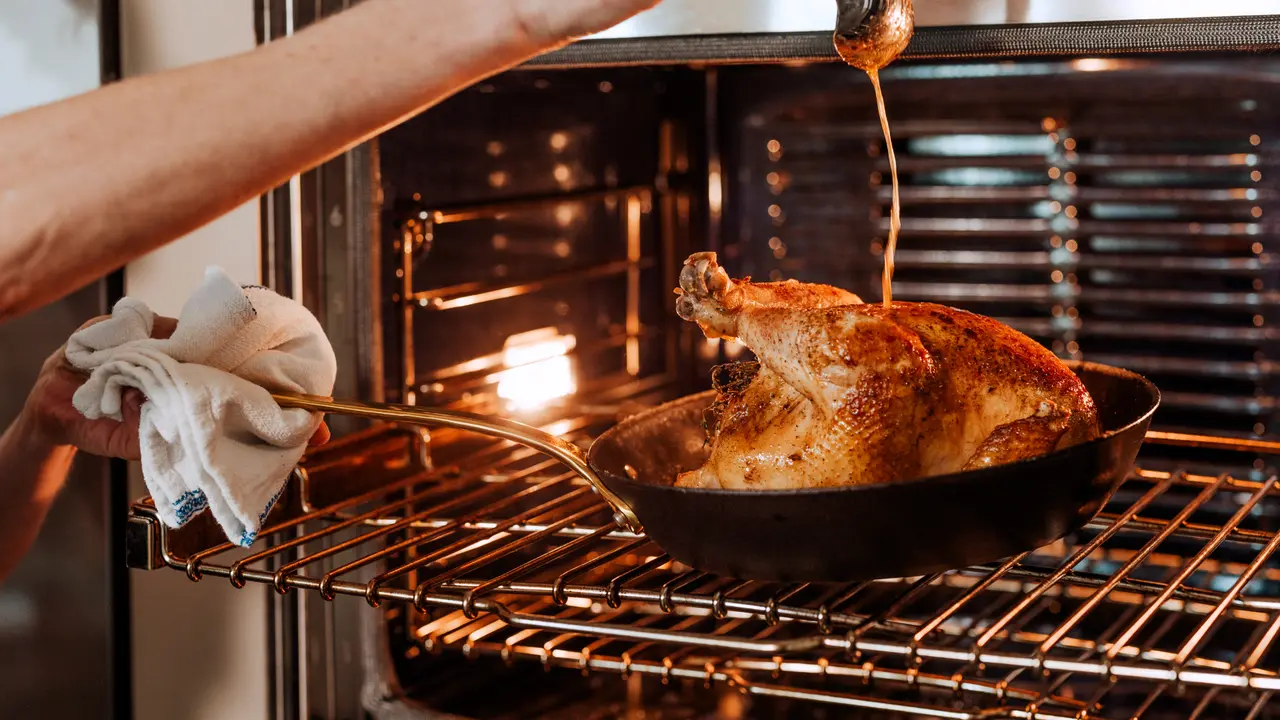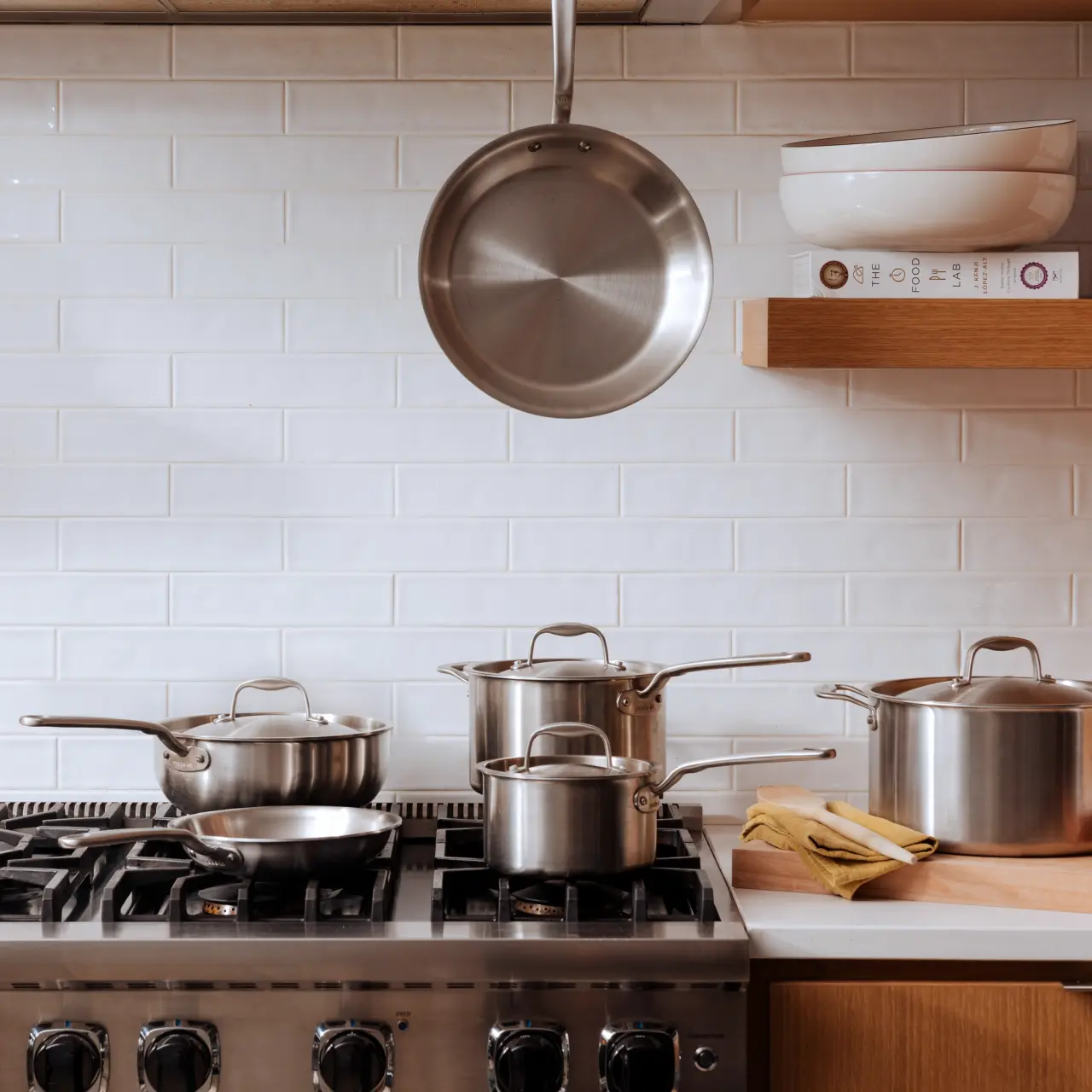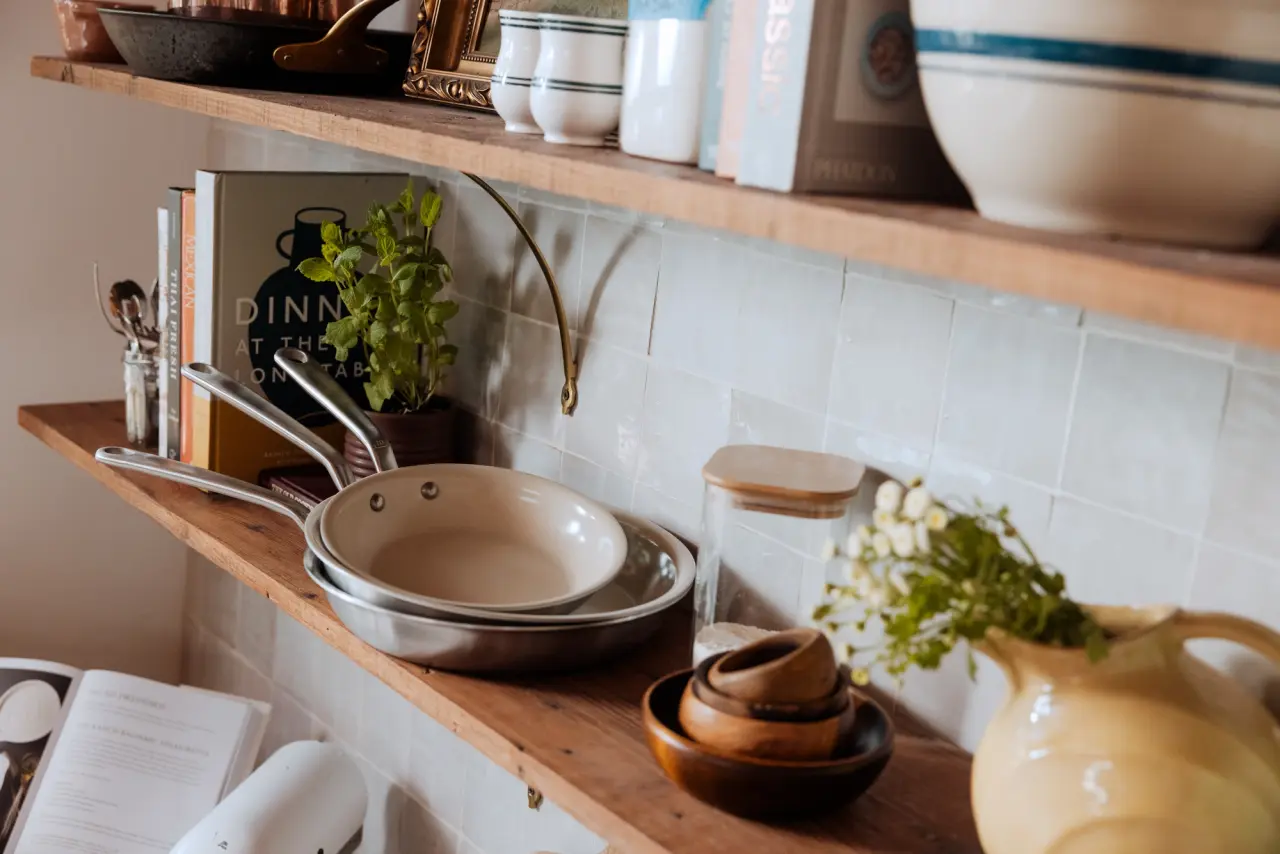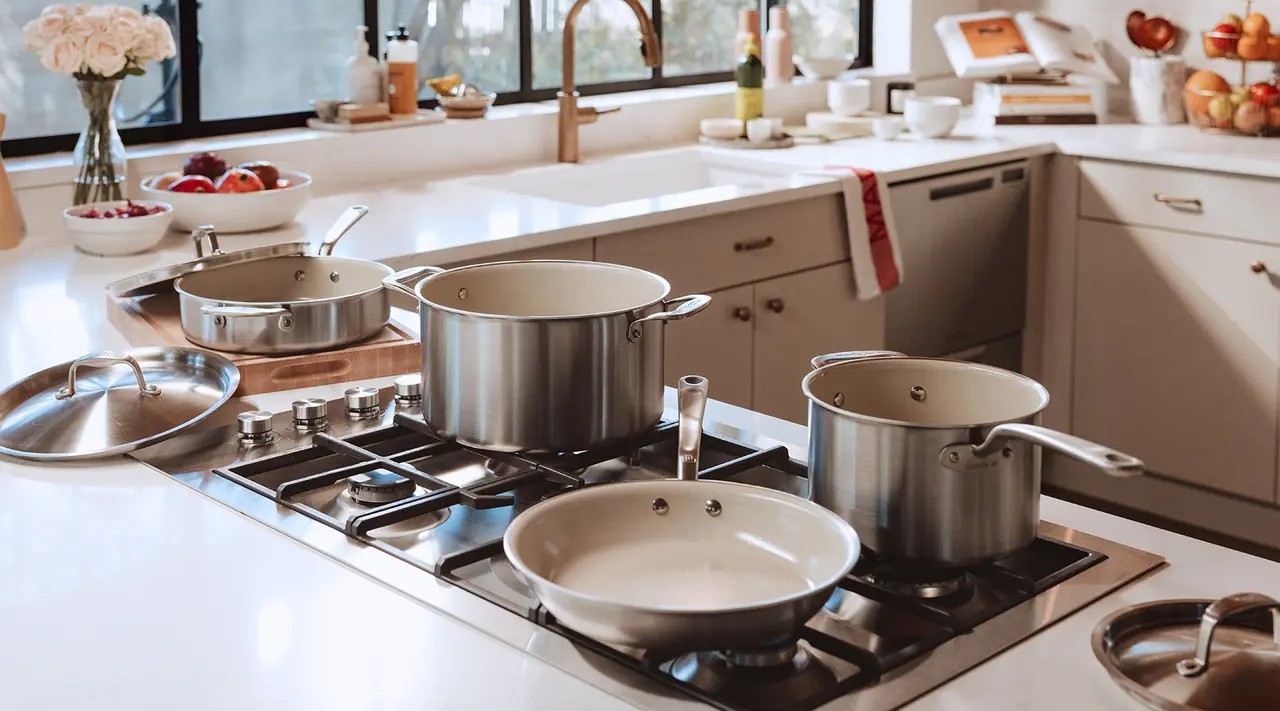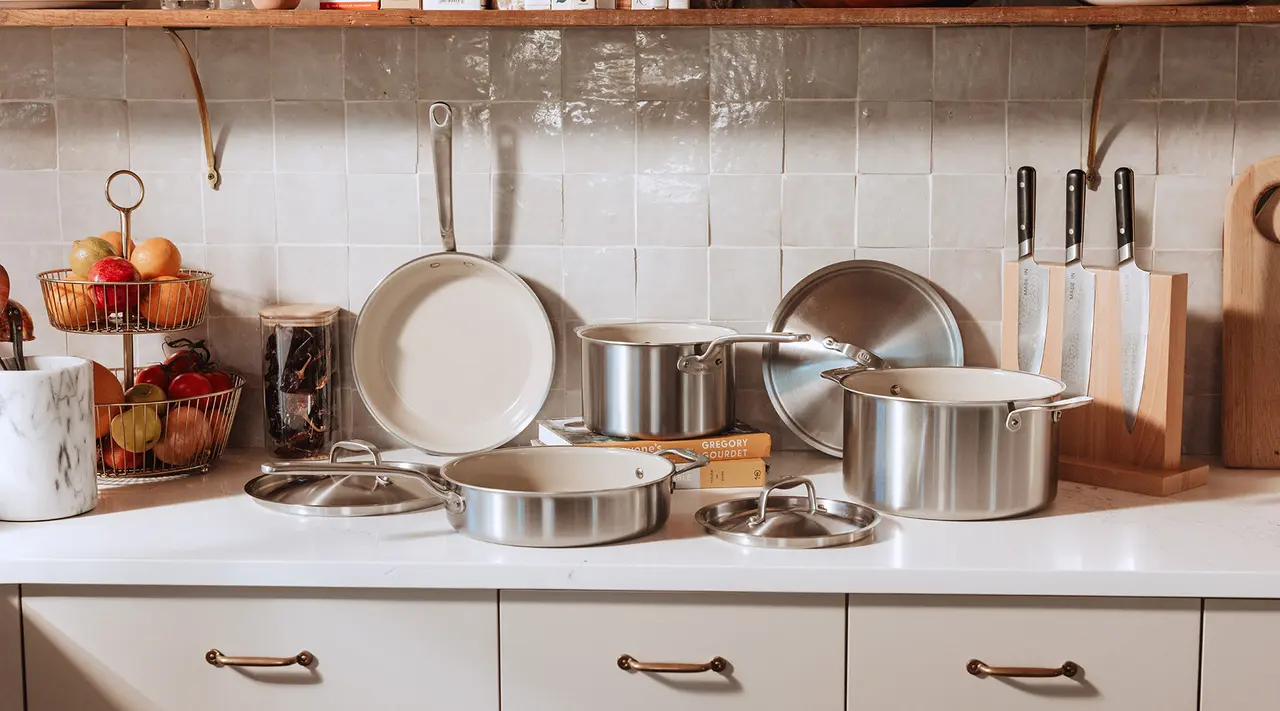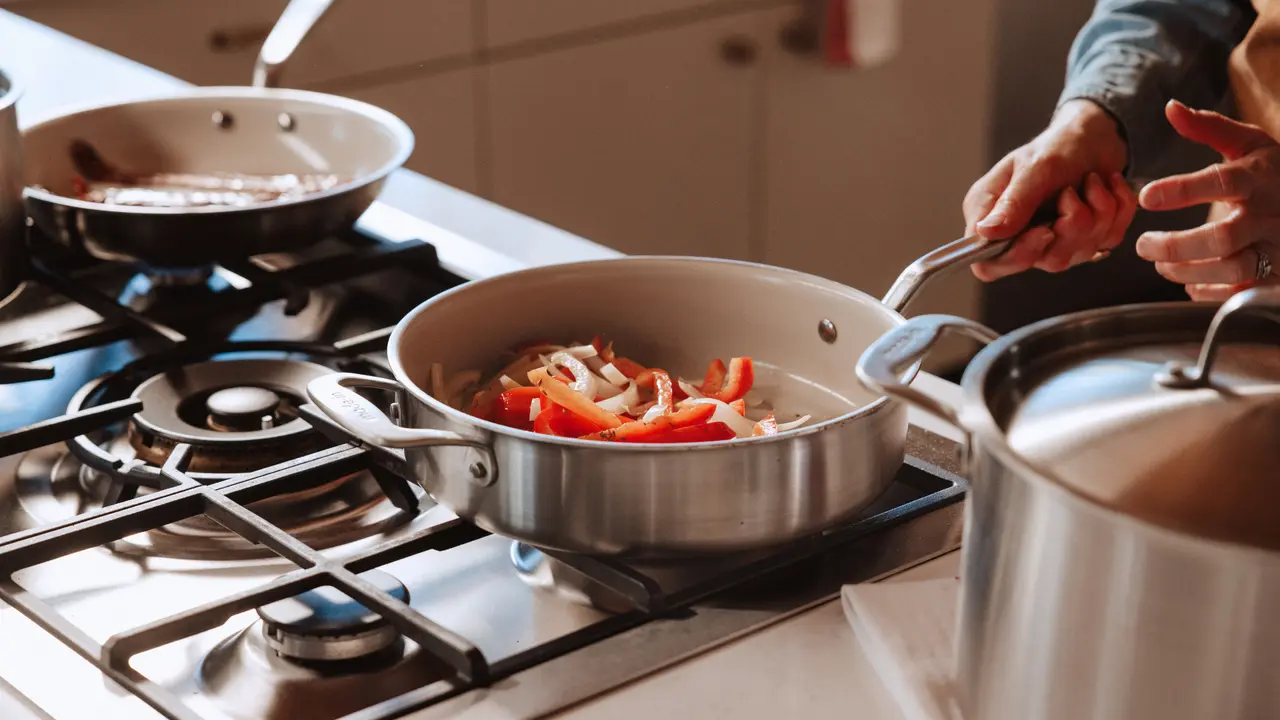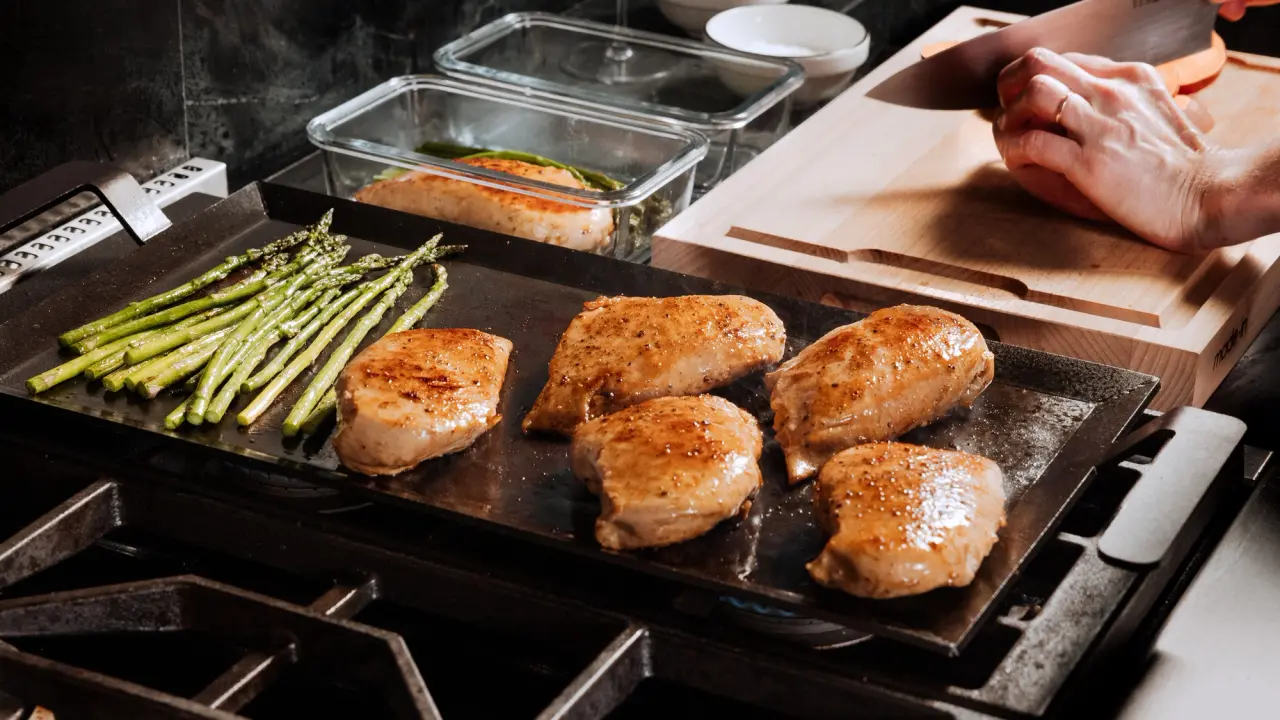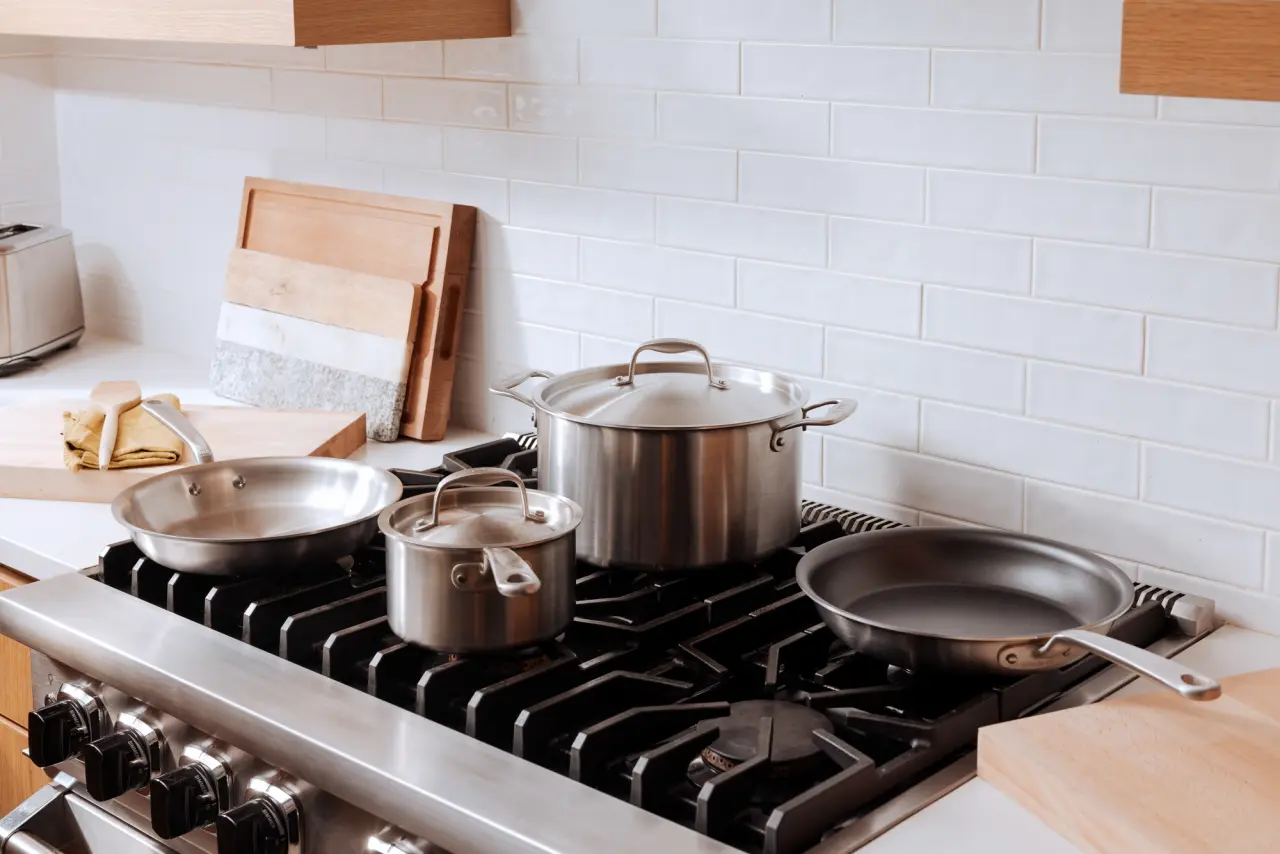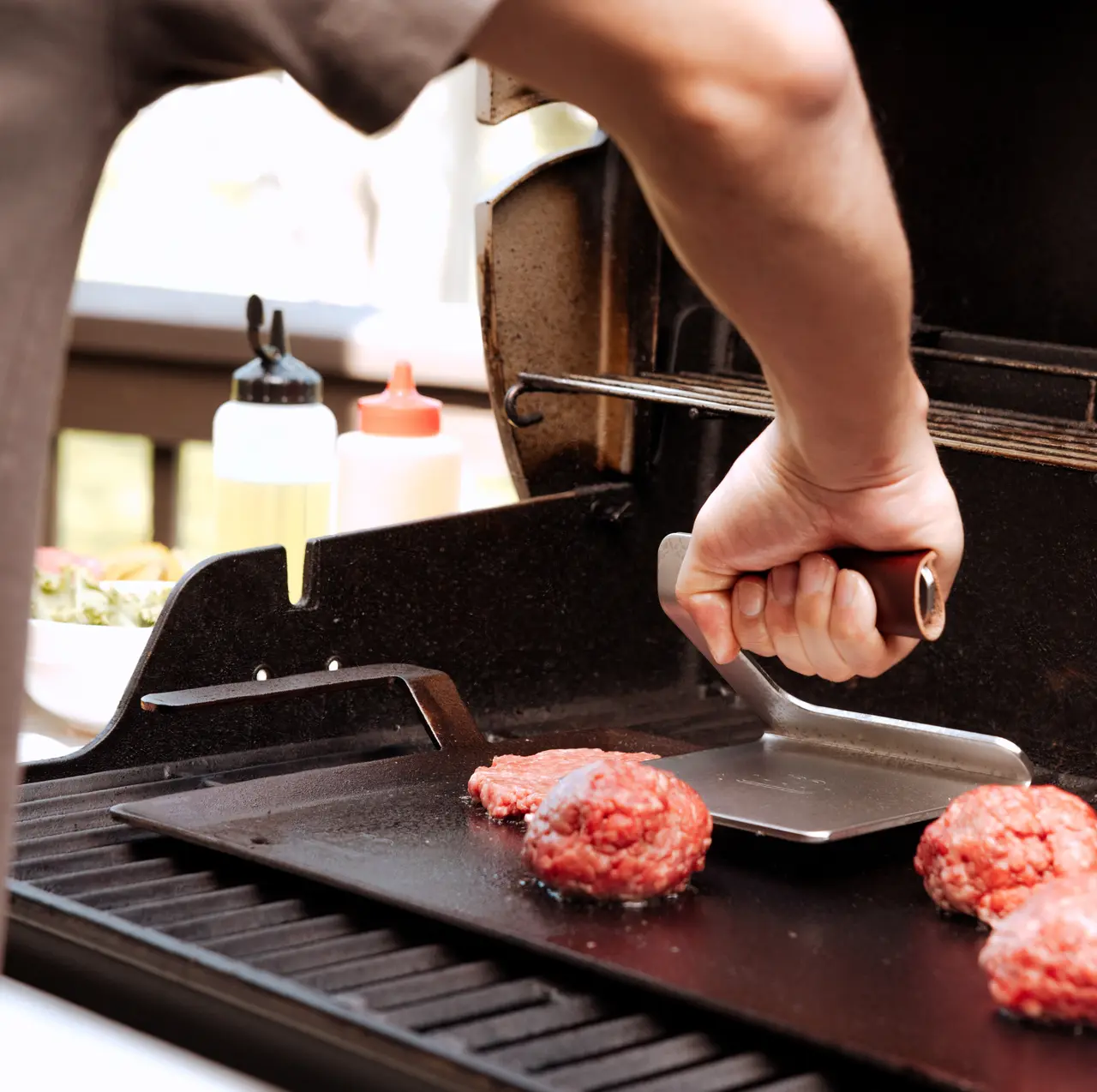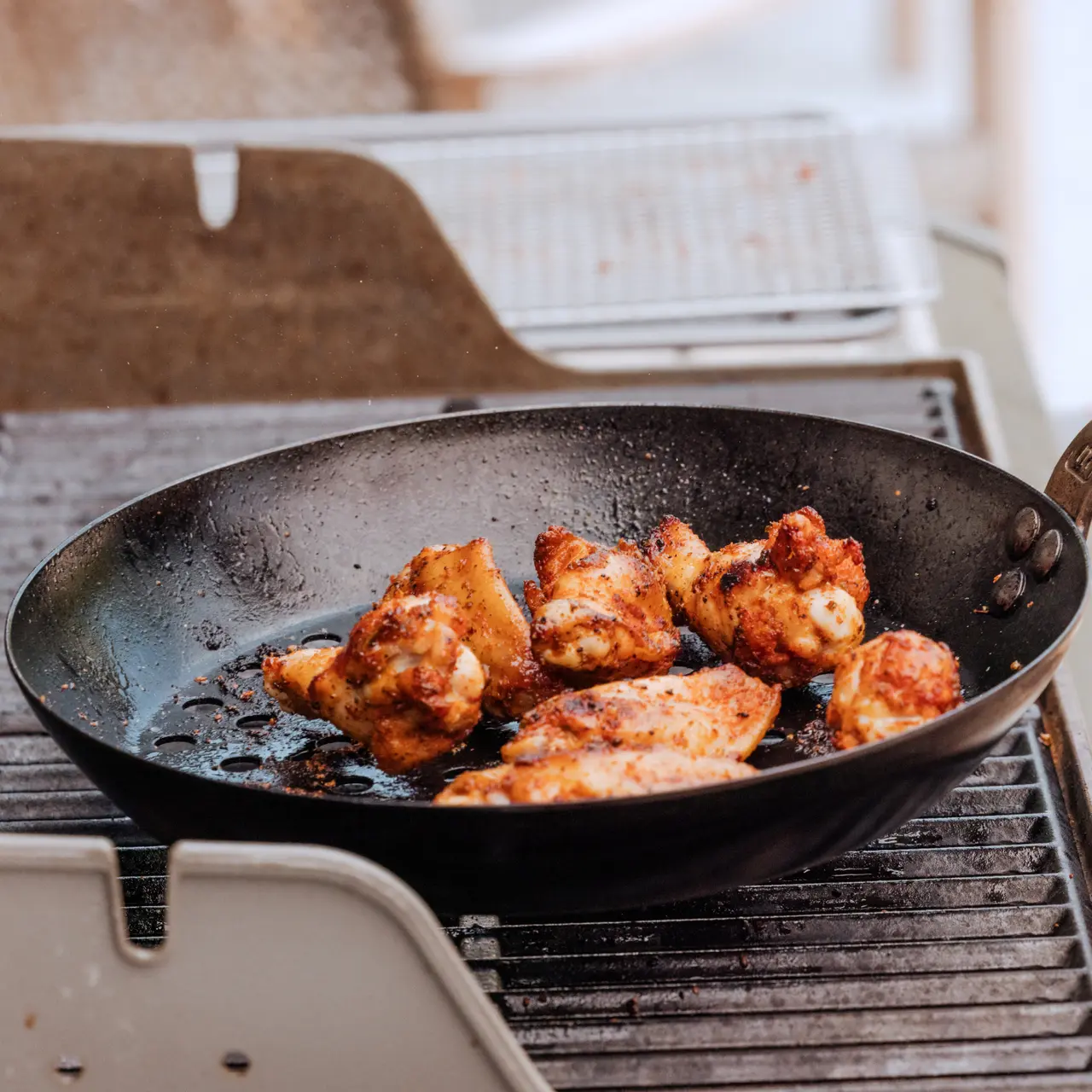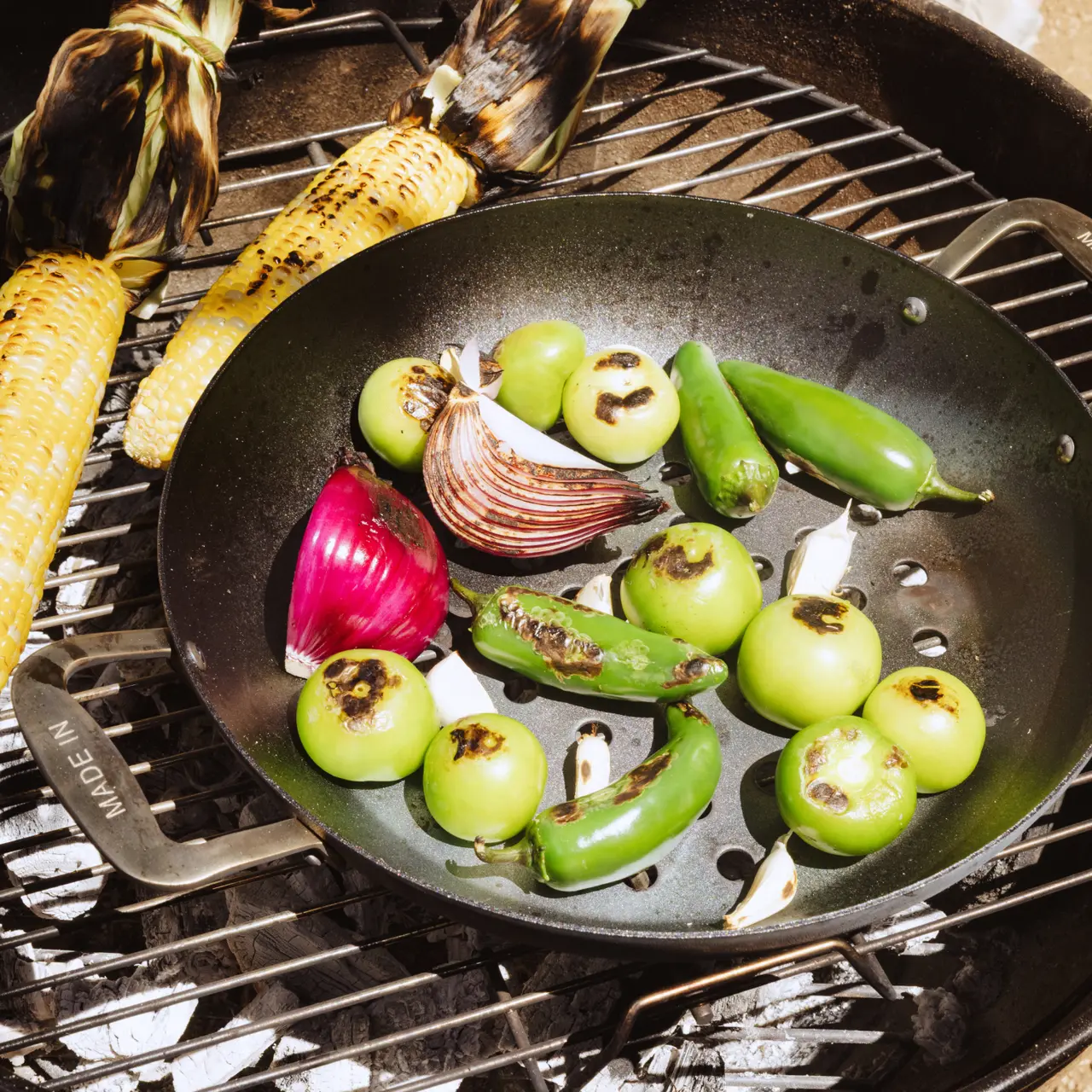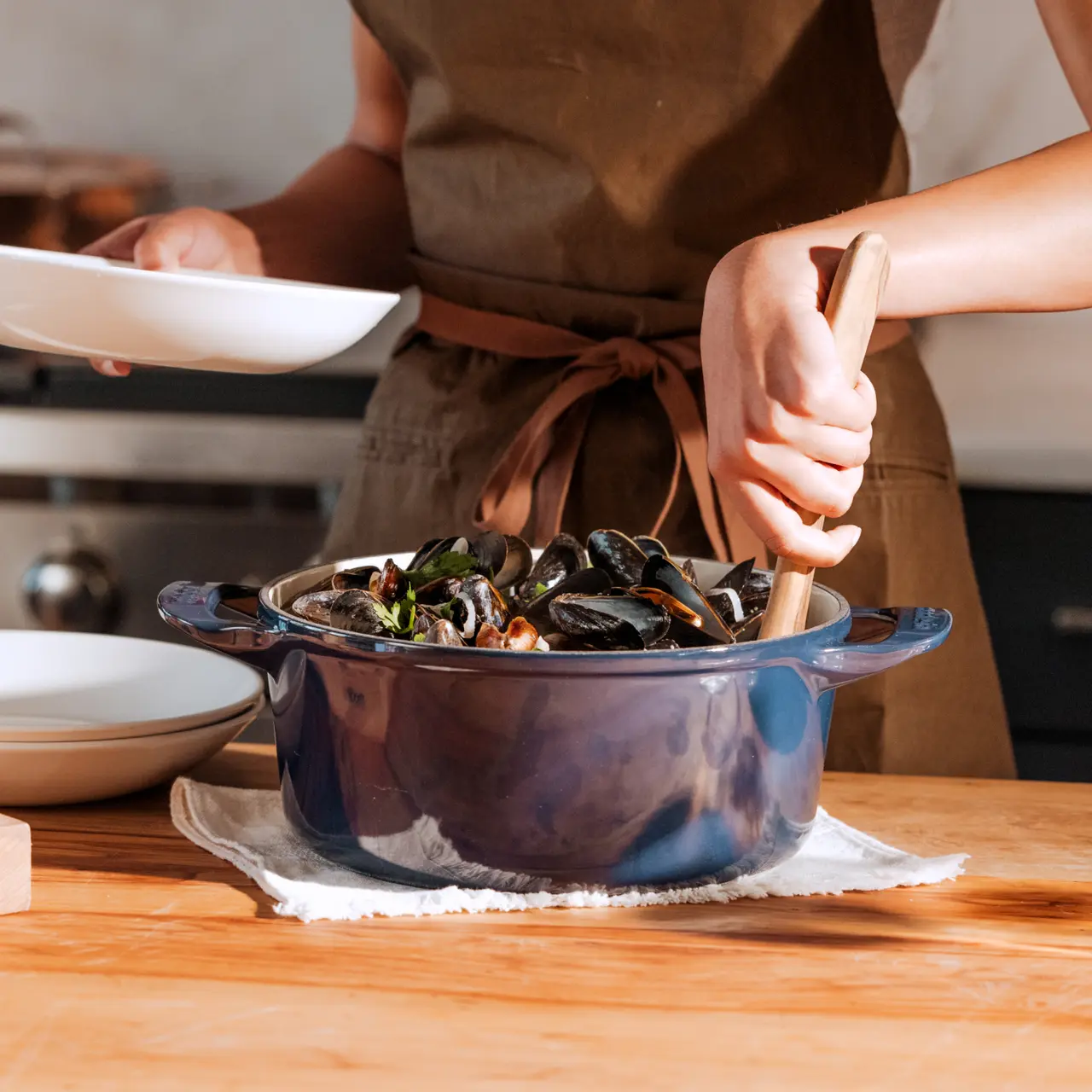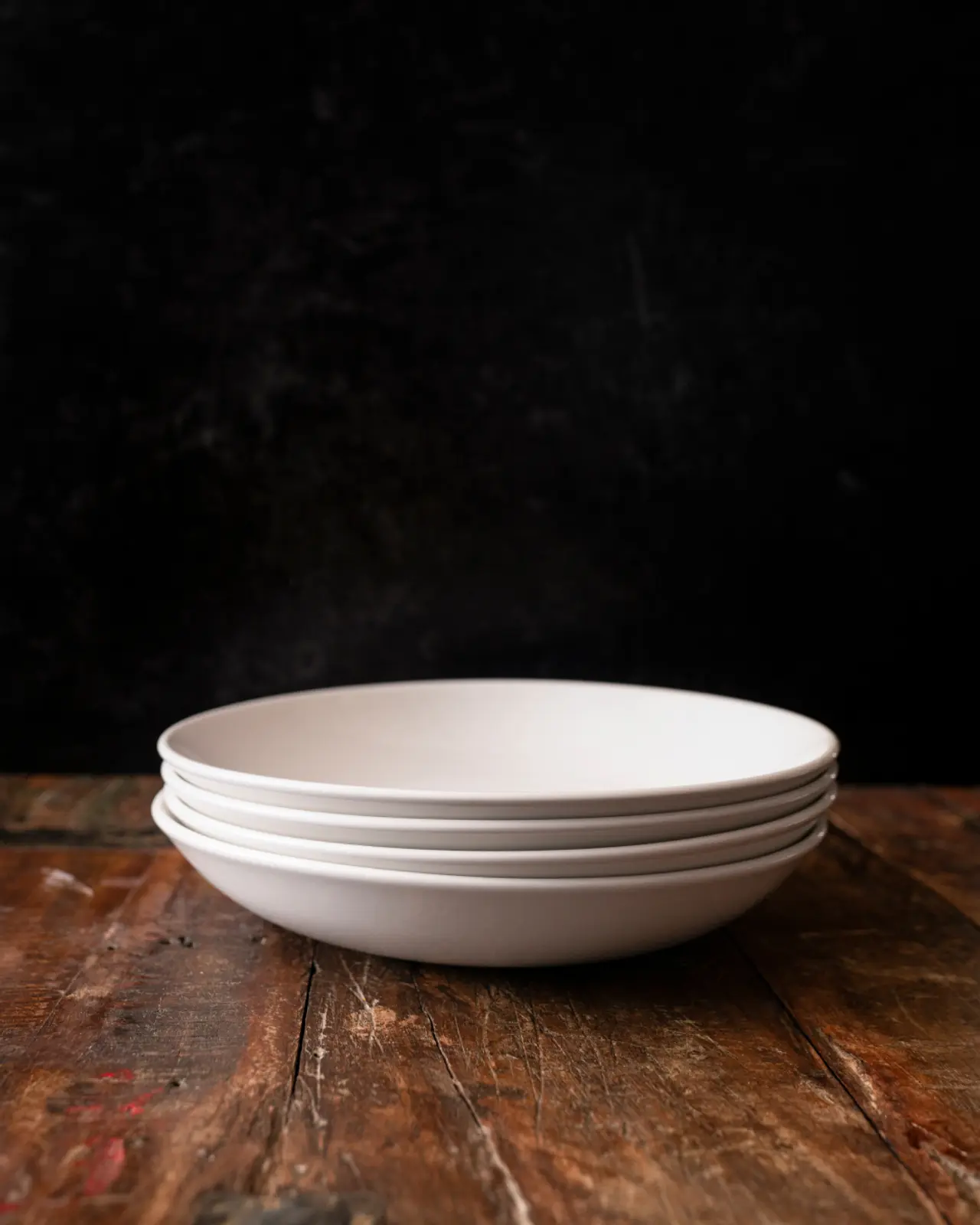Saucepans are an essential kitchen tool that can be found in almost every kitchen, whether home or professional. As the name implies, Saucepans are great for the likes of a hollandaise sauce, but they can also be used for much more. Here we'll break down why you should have a Saucepan in your kitchen and a few ways you can get the most use out of it.
What Is a Saucepan?
A Saucepan is a stovetop pot that features high walls, a circular base, and a long handle. Another important feature is its tight-fitting lid, which can be left ajar to let steam escape or can be firmly affixed to keep heat inside. They come in a variety of sizes, but the most common are 2 Quart and 4 Quart.
We make our Saucepans in two different materials—Stainless Clad and Non Stick. Both start with a base made of 5-ply stainless steel, with the Non Stick variation covered in a professional-grade, non-toxic coating made without PFOAs. In terms of other Cookware, our Saucepans are larger than our Butter Warmer but smaller than even our smallest Stock Pot.
What Can I Cook in a Saucepan?
Saucepans are designed for sauces but they can do so much more. The key features of our Saucepan are its high walls, flat base, and tight fitting lid. Because of that, Saucepans have many uses, including as cooking sauces, grains, and, small batches of soup.
Sauces
Whether it’s a standard red sauce, creamy béchamel, or a hearty ragù, our Saucepan is ideal for both cooking and reheating sauce. Its high walls keep the ingredients in your pot rather than on the stovetop. Plus, because of its 5-ply construction, our Saucepan also provides even and consistent heat, no matter the cooking temperature. Because of this superior heat-retention, it's also great for reducing sauces without scorching them.
Grains
Our Saucepan works well for cooking grains such as farro, rice, quinoa, and even small batches of pasta. If you're just cooking for one or two, rather than a crowd, opt for our 4 Quart Saucepan. Rather than boiling a whole Stock Pot worth of water, this smaller pot works just as well, and the best part is, it'll boil in half the time. Plus, it's tight fitting lid is especially useful if you're cooking rice or other grains.
Soups
Most soups start with a base of sautéed vegetables to build flavor, and our Saucepan is perfect for this, especially if you’re not making a large portion. The straight sides will provide even heating throughout the entire cooking process and its flat surface can be used to brown meat as well.
Additionally, if you need to reheat a soup, simple pour it into our Saucepan, place the lid on, and place over low heat, until warm all the way through.
Common Saucepan Sizes
Our Saucepans come in two sizes— 2 Quarts, and 4 Quarts. Finding the correct size for you depends on both the amount of food and people you're cooking for. Smaller Saucepans are good for grains and for making small batches of sauce. Our larger Saucepans are more suited to soups, stovetop mac and cheese (homemade or from a box, we don't judge), or reheating sauce-based dishes. When in doubt, it's always ideal to have the option to use both.
The Best Saucepan Material
Stainless Clad is the best material for Saucepans. Our Saucepan features five layers of metal, which contribute to even heat distribution, proper heat control, and consistent cooking surface temperatures. Our Non Stick Saucepan is the same as our Stainless Clad version, save for a layer of professional grade coating made without PFOAs.
Our Saucepans are also made from one piece of metal, rather than having the base pasted on. This helps regular its temperature, reducing the likelihood of ingredients burning. This helps your food cook evenly, rather than blasting it with heat from the bottom.
Ready to Cook?
Saucepans are a great piece of Cookware for everyday cooking, whether that's making your morning oatmeal, reheating last night's pasta for lunch, or simmering a small batch of soup. Cooking is inherently messy, so if you're wondering what to do when your Saucepan, or any of your other Stainless Clad Cookware needs a serious clean, check out the video above. While Steve demonstrates with a Frying Pan, these methods can be used on our Saucepan as well.
